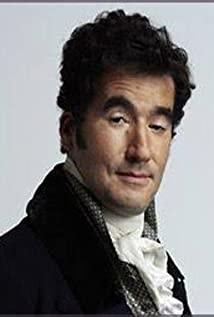Going back to the movie "I was in Love" (Shadowlands), Z introduced me to this movie very early. A sham marriage between CS Lewis, an old career man who has never been in love for life, and a 37-year-old female writer who fell in love, happened by accident in order to get her the right of abode in the UK. Later, they fell in love. She died of bone cancer early. The old business man wrote an emotional memory "Qing Qing Ru Mei" to record this experience. The film is adapted from the true story. Old business man, a lover of writing, but also includes academic masterpiece, "The Oxford History of English Literature" 16th century volumes, "many people are familiar fairy tale" The Chronicles of Narnia "and theological work" day return to the road "and so on.
Old men need to get career To bear with his wife all the ills brought about, and to bear the pain of losing her, these are not easy for ordinary people, and it is even more difficult for him. Their love is late but close to perfection. He has a A sensitive and lonely heart, he used to be so loyal to God, and now has to turn back to question life and God’s goodwill. Fortunately, he finally found peace. In the book he wrote: “Why love, if losing hurts so much? I have no answers any more, only the life I've lived."
The film does not describe the process of struggle in detail, and it is not clear how it is recorded in the book. I have not had the honour to read "Qing Qing Ru Met". Regarding this book, the author of a newly beloved wife “pauses” his post-reading impression. He mentioned: “He (CS Lewis) reconciled with God after experiencing this torture. I don’t have any special feelings. I just don’t feel so happy. I have completed such a major project in just a few pages. Of course, maybe because I have not lived so well with God, I can’t talk about reconciliation, and reconciliation is not so easy. Reconciliation The scene doesn’t touch me much.” Judging from the comments of this empathetic reader, the old business man’s account of the pain itself and the process of reconciliation with God in the book may be very brief.
The so-called absolute happiness does not really exist. Everyone has experienced or will have some pain that cannot be undertaken or measured in life. Pain is a subjective thing. The pain value produced by the same experience varies greatly among different individuals. It was a great pain for this person, but it would be a rock with feet when viewed by another person. Perhaps Z is the former. She once said to suffering: "I must have an answer. If not, I will have one even if it is due to fate. Those facts and answers have been burdened like a mountain. A little bit of courage and strength has already been consumed. Exhausted." I have never been reluctant to let it go like she did, although I can understand the pain of the sand in the shell of this little clam.
I have been reading the blogs of the couple "Fruit" and "Pause." As a doctor, I can easily predict her fate after she is terminally ill, and even partially foresee the order on the timetable. As an ordinary reader, I can't help reading their text. I have never been clear why I did this, because I don't know them, nor are they a special follower of their words or ideas. Until today, Z told me that the Luigi who wrote about Pause is actually the protagonist of the movie "I was in Love". I didn't understand what I was waiting for while reading, and I was waiting for some kind of miracle to happen. Now that I think about it, this kind of expectation is not only selfish but also tasteless, and it doesn't respect the parties. After all, I seem stingy in certain things. I was in the past, but I’m afraid it will still be in the future.
What am I looking forward to? Back in 2005, when I mentioned the story of the Lewis couple in the afterthought of another movie, I once thought: "A meeting with fate does not necessarily end with a compromise." I quoted the words of Lewis' wife. To explain: "The pain of the moment is a part of happiness at that time, or the pain of that time is a part of happiness at the moment. This is our contract with destiny."
When the pain is unbearable, ordinary people try to contact God. Seek a compromise. For greedy people such as Z or me, compromise is innumerable and can hardly deceive us. Signing a contract of destiny of reconciliation with God and ourselves may be the only ending we can accept. The relationship between compromise and reconciliation is about the relationship between the sand grains in the shell of the mussel and the pearl. It may be possible to receive the pearl if the body can withstand such pain.
Two people who love each other are like the two banks of a river, without one without a river. How much water the river holds does not depend on how close the two banks are, but exactly how far they are. When you have the courage to raise your head and sign a contract with God alone, having someone standing across the river may make things much easier. If the other person does not give you freedom, it will not give you courage, fair and simple. However, how difficult is this mutual support, if not by chance, how can it be obtained? It is much more difficult than finding a person who is in love with each other.
Life is such a long river, and we who look forward to reconciliation with God are so lonely and dependent on each other. Because we may lose, so we love each other.
View more about Shadowlands reviews











